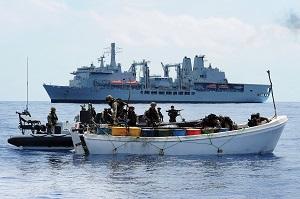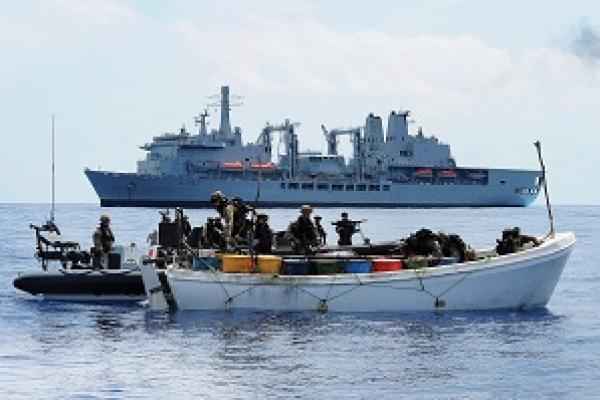
Sarah Nowak
Published: April 01, 2016

Initial Assessment – Reliable information - Correspondents
From time to time Owners receive orders from their charterers to call at a port in a country which may be politically unstable and where there may be a warlike situation developing, for example Yemen, where there are continuing reports of fighting and airstrikes in response to terrorist activity. In such circumstances, it may be difficult for Owners to obtain information quickly about the situation on the ground and understandably, Owners will have concerns for the safety of the vessel and her crew. In extreme situations, Owners may consider rejecting charterers’ orders.
The Club is able to assist Owners, and indeed Charterer members if their owners are refusing to follow orders. First, the Club can obtain updates from the local Club correspondents who will be able to provide information on whether the port is open and working, and any restrictions issued by the Port Authority, for example whether vessels are being allowed to enter the port, in relation to any unrest and the danger posed to shipping generally.
Secondly, on the basis of such information the Club can assist with legal advice for Owners who may be considering refusing charterers’ orders or Charterers faced with an Owners refusal to follow orders.
What does the Charterparty say?
The charterparty will usually set out any excluded ports. Assuming the vessel has not been ordered to call at an excluded port, the charter may also contain a Conwartime clause – an example of which is set out below:
(ii) "War Risks" shall include any actual, threatened or reported:
war; act of war; civil war; hostilities; revolution; rebellion; civil commotion; warlike operations; laying of mines; acts of piracy; acts of terrorists; acts of hostility or malicious damage; blockades (whether imposed against all vessels or imposed selectively against vessels of certain flags or ownership, or against certain cargoes or crews or otherwise howsoever); by any person, body, terrorist or political group, or the Government of any state whatsoever, which, in the reasonable judgement of the Master and/or the Owners, may be dangerous or are likely to be or to become dangerous to the Vessel, her cargo, crew or other persons on board the Vessel.
b) The Vessel, unless the written consent of the Owners be first obtained, shall not be ordered to or required to continue to or through, any port, place, area or zone (whether of land or sea), or any waterway or canal, where it appears that the Vessel, her cargo, crew or other persons on board the Vessel, in the reasonable judgement of the Master and/or the Owners, may be, or are likely to be, exposed to War Risks. Should the Vessel be within any such place as aforesaid, which only becomes dangerous, or is likely to be or to become dangerous, after her entry into it, she shall be at liberty to leave it.
If, upon review, Owners consider that the situation at the port constitutes “warlike operations” for the purposes of the clause, the next consideration will be whether in their reasonable judgement the port is or is likely to become dangerous to the vessel, her cargo, crew or other persons on board the vessel, thereby allowing the Owners to seek from charterers a nomination for an alternative port. This issue was reviewed by the court in The Triton Lark [2012] EWHC 70 (Comm) and Sea Venture issue 19 .
Caselaw: The Triton Lark
This was a case that involved the refusal of an order to go through the Gulf of Aden at the height of the piracy problem. The decision of the owners must be a reasonable one and an owner must be able to show that there was a real likelihood that the vessel would be exposed to such a risk. “Real likelihood” is difficult to pin down but the Court decided that it must be something more than a ‘bare possibility’.
The test is both qualitative and quantitative. A Master may refuse an order where there is a war risk and there is a real likelihood that that risk will be dangerous to the vessel, where the danger is defined by reference to the extent and prevalence of the risk and the nature of the consequences to the vessel should that risk come about i.e not a risk that a serious event will occur but a serious risk than an event will occur.
It is therefore necessary to apply the test to the position that Owners are in: in other words, while it may be clear that the consequences of a warlike operation at the port are obvious and severe, Owners should also consider the likelihood.
The court had also made it clear that if Owners refuse to follow charterer’s orders, it would expect to see that Owners had taken third party advice, for example from a risk analysis company, on what was happening on the ground. This would assist Owners in making the decision but also hopefully avoid any later criticism of the decision ultimately taken by Owners, particularly where the charterer’s right to give directions as to the employment of the vessel was described by the court as a “key right”.
It may be possible to obtain clear analysis of the threat of an attack or risk of danger to the vessel while at the port but more difficult to assess how significant that risk is. However, in considering whether an Owner’s refusal to enter a port in such circumstance’s was reasonable and whether the vessel was likely to be exposed to danger, the court in The Triton Lark set the threshold at something that has less than a 50% chance of happening but does not include something which is a bare possibility, and if Owners were able to obtain expert evidence stating that there was a risk to the vessel that was more than a bare possibility, then that might allow Owners to refuse to proceed.
A Commercial Decision for Members
Ultimately Owners must make the decision on the information available and advice received. During pre-fixture negotiations, this will involve Owners carrying out their own due diligence and risk analysis of the proposed voyage, and the inclusion of relevant terms in the charterparty so that, if an area is not excluded, post-fixture Owners have available to them an option to refuse to call at certain ports in the case of warlike situations, for example the Conwartime clause.
The considerations for Owners must include:
- Appetite for risk - the political and warlike situation at certain ports, for example in Yemen is developing but it is not new, so there might already be some general understanding of the risks involved for an owner considering the trade ;
- Possible claim for breach/ claim from cargo receivers- it is open to Owners to argue that the risk is more than a ‘bare possibility’ but they must assess the risk at the time the vessel is due to call at the port and that is susceptible to change-are they willing to risk a claim for breach;
- The need, or whether it appropriate, to seek independent risk analysis of the position on the ground;
- Additional premium/ crew war bonus- if additional amounts are payable, can an agreement be reached with charterers that they will cover these costs;
- Put down a marker with charterers to show that Owners are monitoring the risk and keeping their options open, and seek charterer’s confirmation that, in light of recent events at the port, their orders have not changed
Finally, until or unless Charterers provide alternative orders, Owners should in any event continue to monitor the situation at the port to which the vessel has been ordered because the position can change quickly, and if (i) Charterers maintained their original orders, and (ii) subsequent reports indicate that the port is open and operating, Owners may find they have no option but to proceed to the port or risk being in breach.


